Woke culture is a hot topic, and seems to be pretty polarizing, too. Some people think it’s political correctness gone too far, while others see it as a morally necessary movement that’s long overdue.
One Chinese woman found herself on the wrong side of wokeness when she was confronted by a Caucasian woman who asked if she thought it was OK to appropriate another culture. Her response was quick and sharp, but now she’s asking an online community if she went overboard.
More info: Reddit
Woke culture is booming, but for this Chinese student it got a bit out of hand

Image credits: EyeEm / Freepik (not the actual photo)
She and her Indian friend had switched traditional attire with each other for a cultural dress-up day at their college
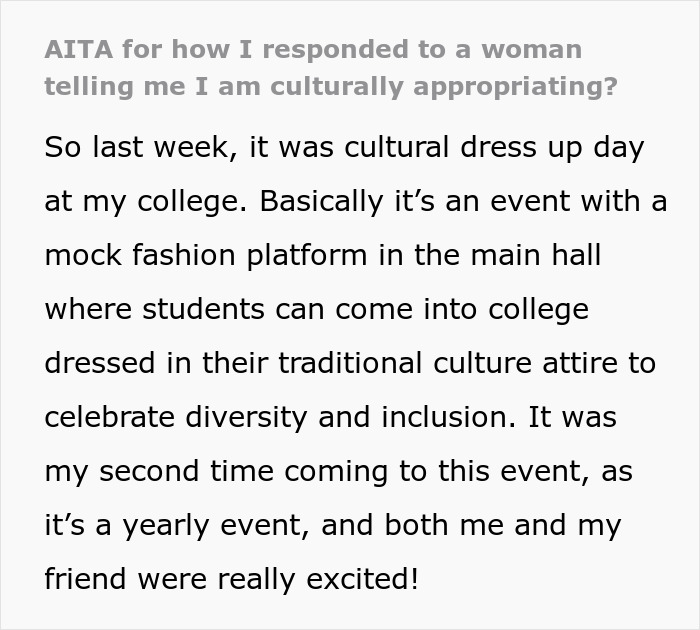
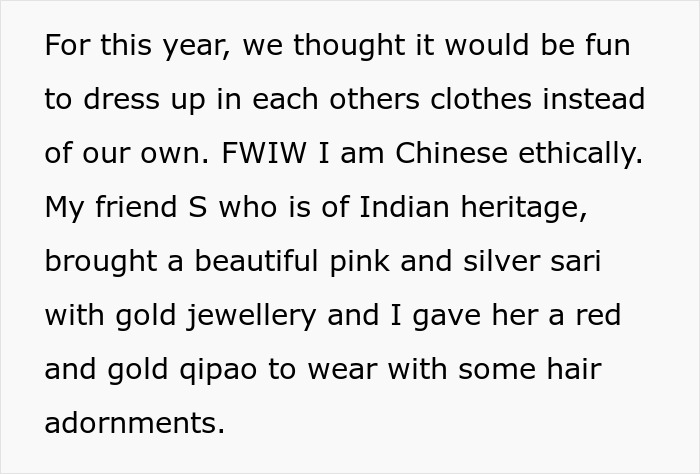
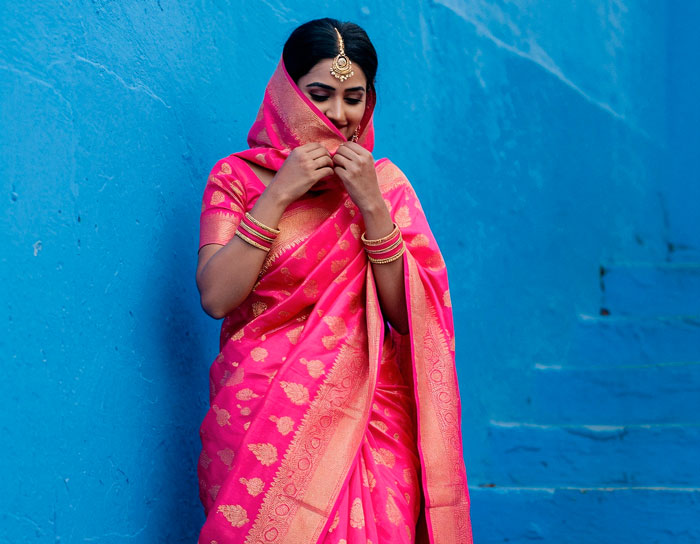
Image credits: freepik / Freepik (not the actual photo)
The pair went to a coffee shop on their way to college, where the Indian student went to the restroom, while the Chinese student waited for their order

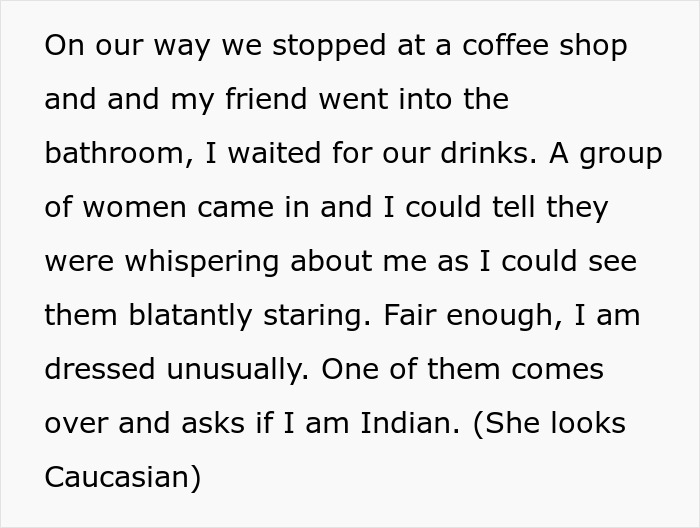
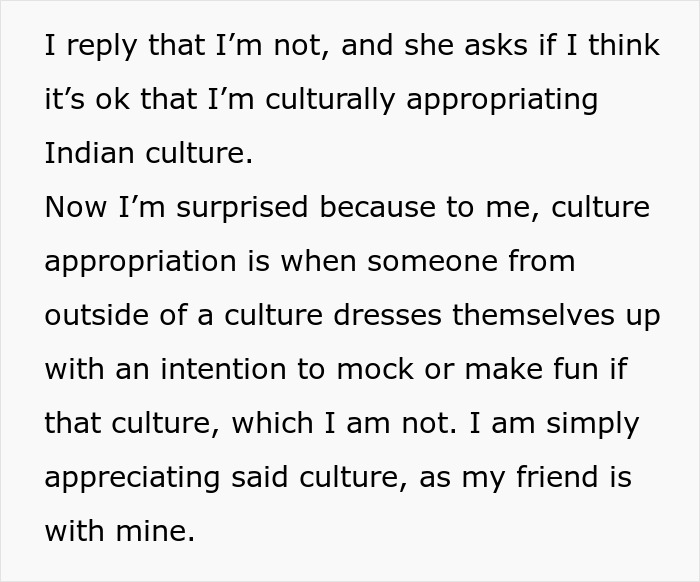
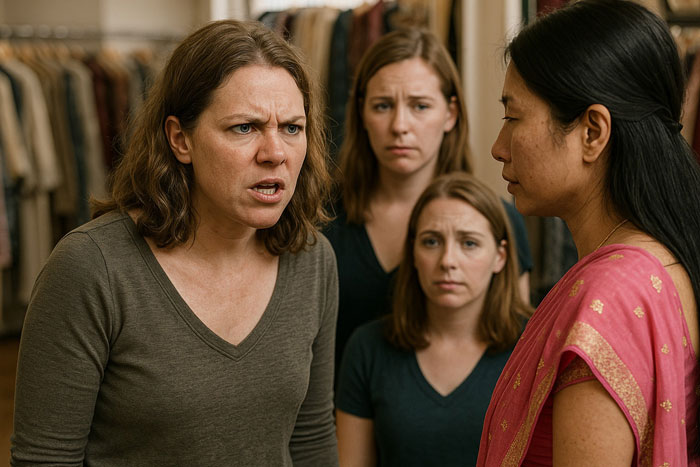
Image generated by Bored Panda using ChatGPT
Before long, she was confronted by a Caucasian woman who asked her if she thought it was OK to appropriate Indian culture
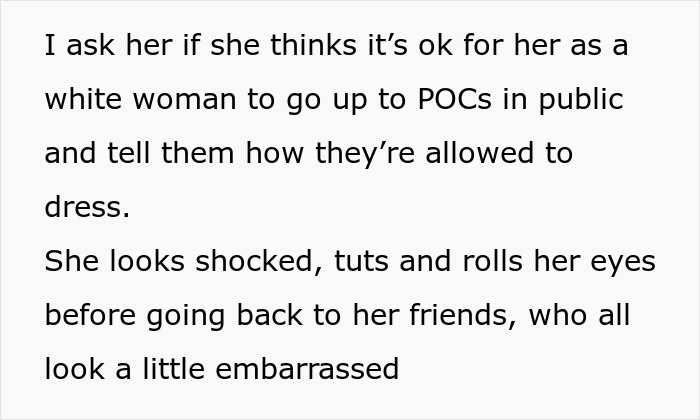
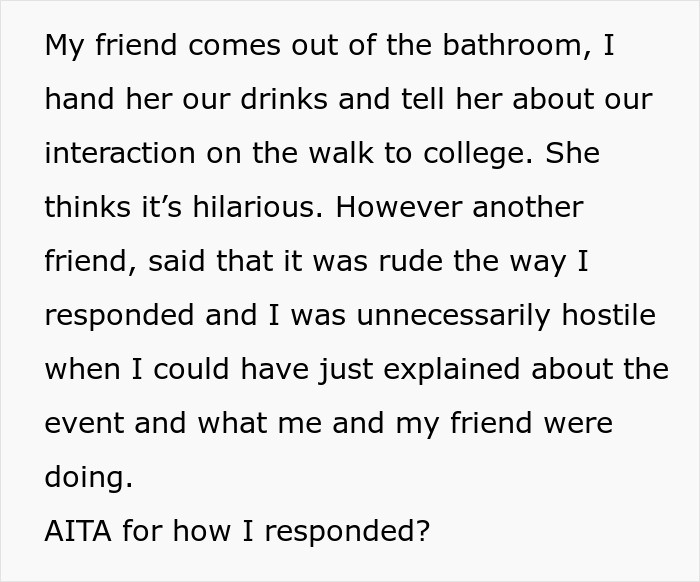
Image credits: Ambitious-Corner-821
The Chinese student calmly lashed back, sending the Caucasian woman running for her friends, but now she’s wondering if she went too far
Cultural dress-up day at one college turned into a bigger conversation than expected after OP, a Chinese student, and her Indian friend had a creative idea: swap outfits! OP wore a dazzling sari while her friend rocked a traditional qipao. The pair were excited to celebrate each other’s culture until a coffee shop pitstop on the way to class stirred up all kinds of drama.
While waiting for their drinks, a group of women started staring at OP. One finally approached and asked if she was Indian. When OP said no, the woman accused her of cultural appropriation. Confused, OP thought: Isn’t dressing up with respect and appreciation different from mocking? After all, her Indian friend had happily encouraged the swap.
Instead of backing down, she flipped the script. Calmly, she asked whether it was appropriate for a white woman to police how people of color choose to dress. The woman didn’t take it well, rolling her eyes before retreating to her embarrassed group of friends. Meanwhile, OP was left fuming for standing her ground.
When she shared the story with her Indian friend, she just laughed. However, another person in class suggested she was too hostile and could have just explained the context. Now, OP’s left wondering: was she wrong to defend herself, or was it fair to shut down unsolicited fashion policing?
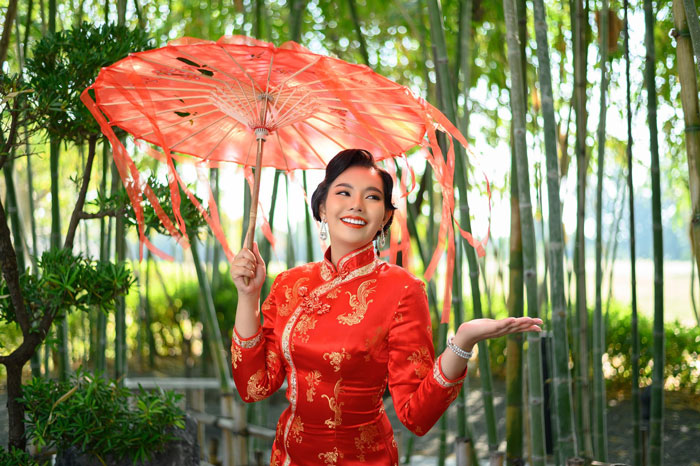
Image credits: jcomp / Freepik (not the actual photo)
From what OP tells us in her post, the situation she found herself in is a typical example of woke culture itself being appropriated. Historically, white women haven’t had to suffer nearly the same struggles that women of color have. Where did woke culture start, though? We went looking for answers.
In her article for Vox, Aja Romano writes that, before 2014, the call to “stay woke” was, for many people, unheard of. The idea behind it was common within Black communities at that point – the notion that staying “woke” and alert to the deceptions of other people was a basic survival tactic.
However, according to Romano, following the 2014 police slaying of Michael Brown, “stay woke” suddenly became the watchword of Black Lives Matter activists, used in a chilling and specific context: keeping watch for police brutality and unjust police tactics.
Since then, “woke” has transformed into a single-word wrap-up of leftist political ideology, centered on social justice politics and critical race theory. Romano says this framing of “woke” is bipartisan: It’s wielded as a shorthand for political progressiveness by the left, and as a denigration of leftist culture by the right.
In her article for Greenheart, Kelsey Holmes writes that it’s important to understand the difference between cultural appreciation and appropriation. Appreciation is when someone seeks to understand and learn about another culture in an effort to broaden their perspective. Appropriation is simply taking one aspect of a culture that isn’t your and using it for your own personal interest.
Perhaps the whole fuss could have been defused if OP had taken the time (and a deep breath) to explain the context to her accuser. Then again, should she even have had to?
What would you have done if you’d been in OP’s shoes? Do you think she went overboard, or did her accuser need the reality check? Share your opinion in the comments!
In the comments, readers seemed to agree that OP hadn’t crossed a line and that, if anything, the white woman was at fault
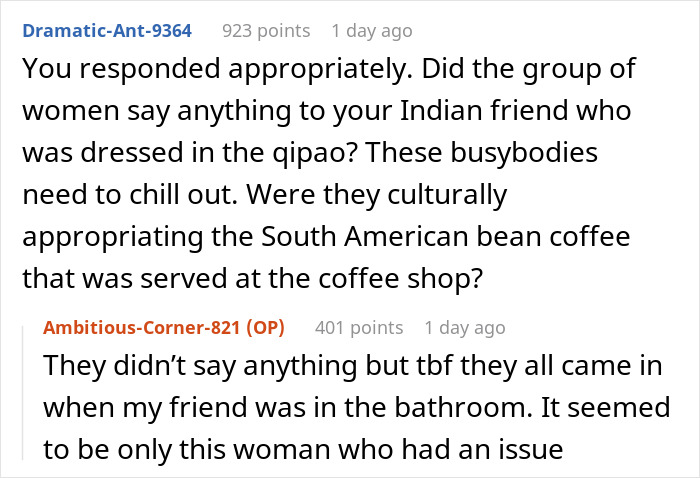
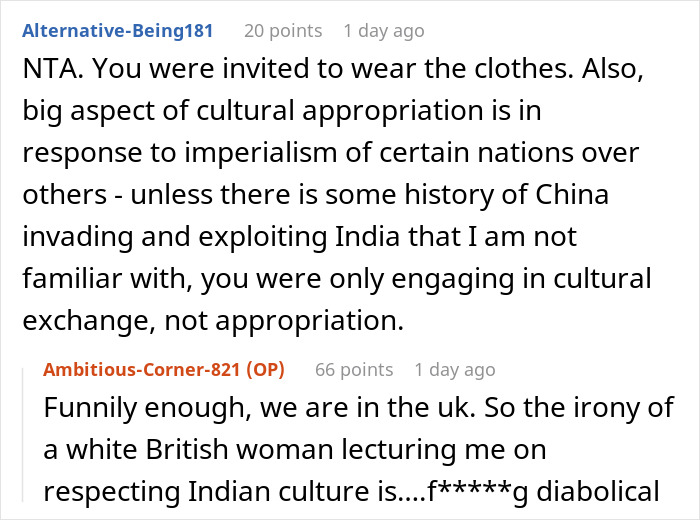

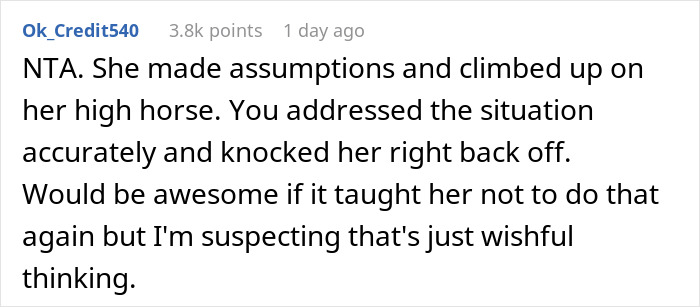


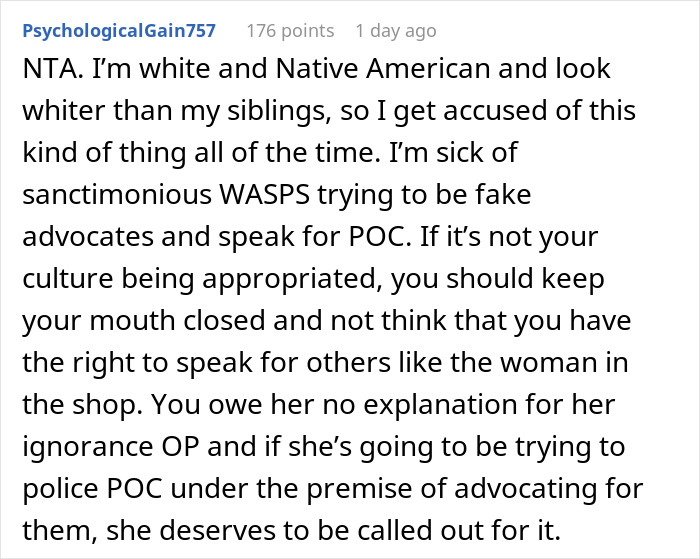
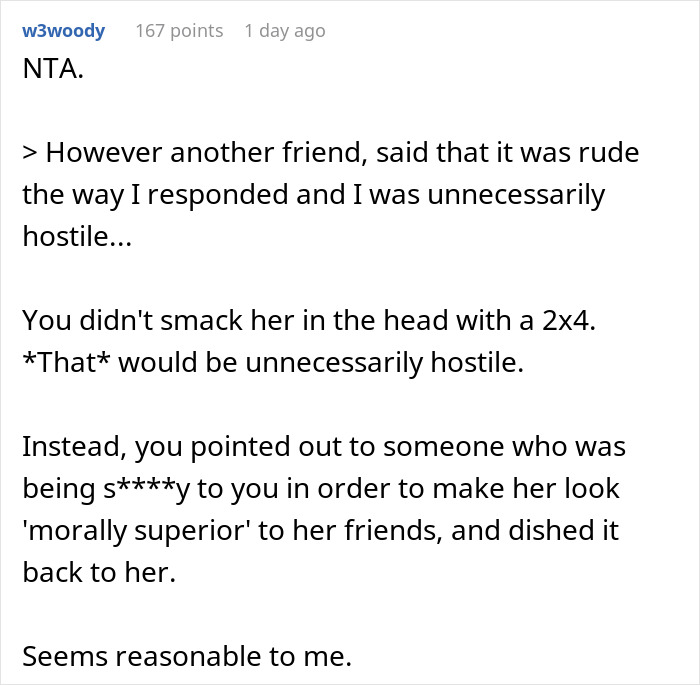



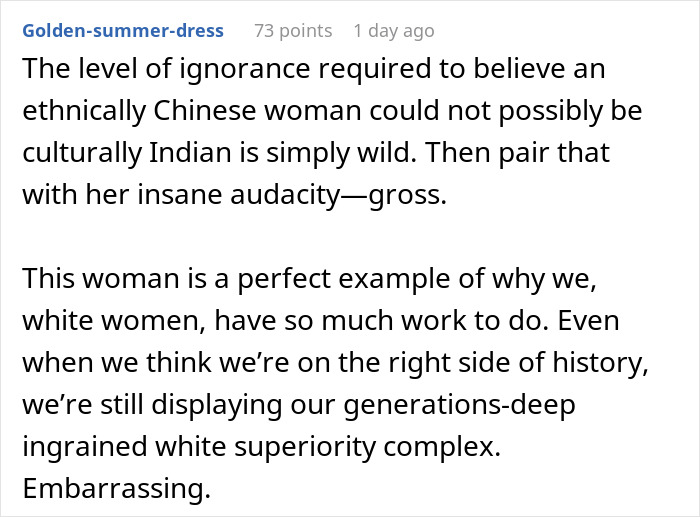
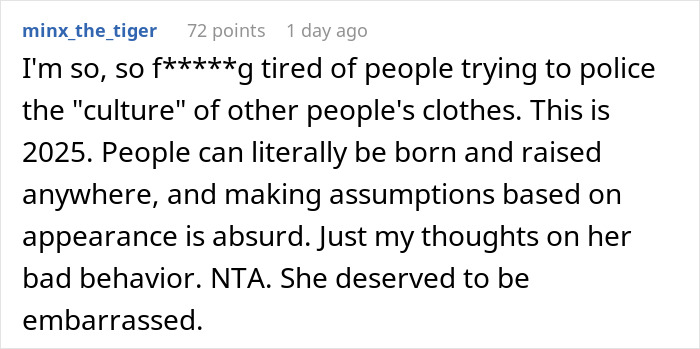
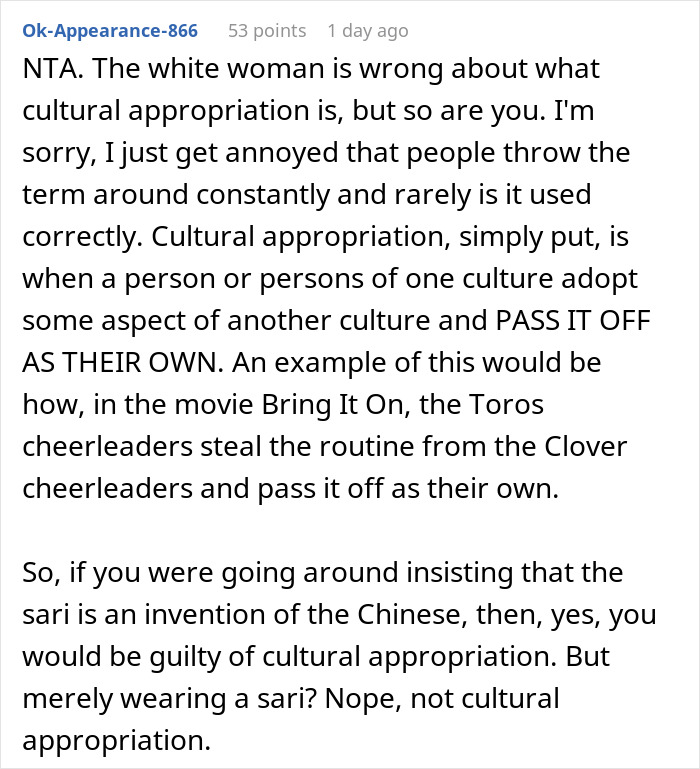
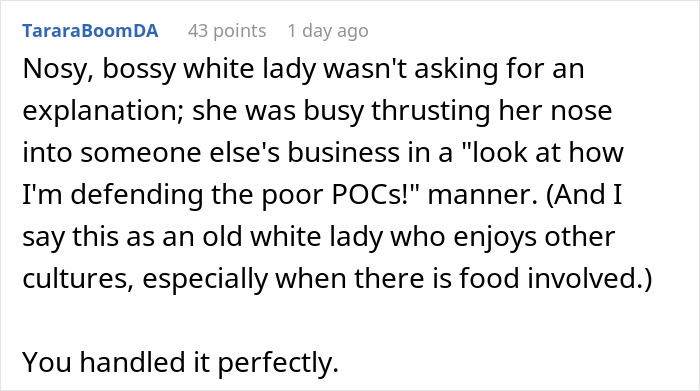
 Follow Us
Follow Us





